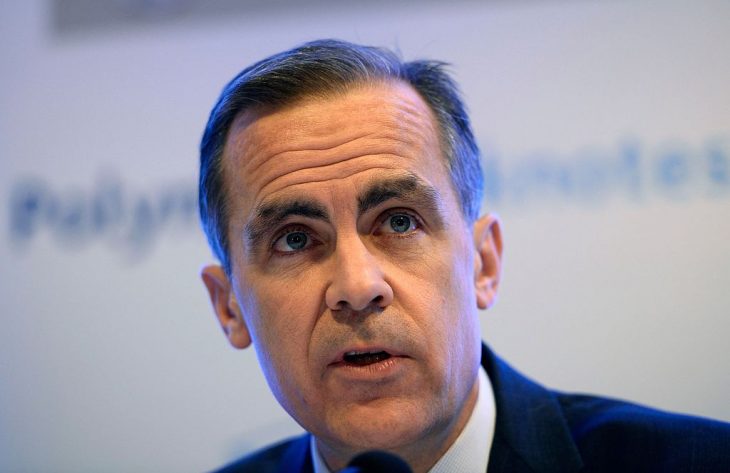Mark Carney made himself some enemies during the referendum. It wasn’t only his gloomy prophecies that caused trouble. His willingness to speak out in the first place was enough to anger those who thought he should keep shtum on a politically-loaded topic like Brexit. Today, though, we saw a different Carney. Gone was the gloominess, and in place of his warning that the referendum was ‘the most significant’ risk to Britain’s financial stability, came the verdict that Britain was largely out of that particular storm. He told the Treasury select committee that:
‘Having got through the night, if you will, and the day after, the scale of the immediate risks around Brexit have gone down, for the UK’
Carney went on to clarify that the biggest risks to the UK economy are now global, rather than Brexit-related – marking a departure from his remarks last year that risks ‘around the referendum’ were the most dangerous. If the Bank of England governor’s tone was different, he was steadfast over his role in helping Britain weather the referendum rain. As during his select committee appearance in September, he told his old nemesis Jacob Rees-Mogg that the steps taken by the BoE – slashing interest rates to a new low, and stepping up quantitive easing, to name two – helped ensure the process so far had been smooth. And he also stuck to his guns by saying that his ‘risk analysis around Brexit’ was right. There was no chance of Carney following in the Bank of England’s chief economist’s footsteps and accepting that forecasts may have been over boiled.
But for all this (relatively) good news, Carney was clear that there are still some risks ahead – for Europe, more so than for the UK. He said that:
‘There are greater financial risks on the continent in the short term for the transition than there are for the UK’
Carney is obviously not saying Britain won’t be hit by any turbulence on the way out of the EU. But in giving his verdict that the risks are greater in other European countries, the inevitable conclusion is that an orderly transition looks sensible for all parties involved, EU leaders included. Carney made the point that the ‘plumbing and wiring’ of many financial institutions from across Europe passes through, or ends up, in London (as the New Financial think tank has pointed out, more than three quarters of all capital market business in EU countries is conducted out of Britain). From this point, it’s possible to get a glimpse as to why a deal with the EU is a likely prospect. After all, it’s in Europe’s interest as much as it is ours.
So what should that agreement look like? Carney was wise not to stray into the miry territory of giving a verdict on whether Britain should stay put in the single market. Yet it was clear that Carney thinks a transition agreement with Europe is the best way ahead for now. He didn’t say so in so few words, but his view that such a temporary agreement was ‘welcome, highly advisable’ and the ‘best mitigant’ to the risks facing Britain made it plain enough to see.







Comments